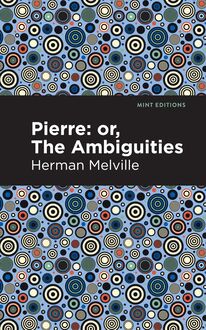-
 Univers
Univers
-
 Ebooks
Ebooks
-
 Livres audio
Livres audio
-
 Presse
Presse
-
 Podcasts
Podcasts
-
 BD
BD
-
 Documents
Documents
-
- Cours
- Révisions
- Ressources pédagogiques
- Sciences de l’éducation
- Manuels scolaires
- Langues
- Travaux de classe
- Annales de BEP
- Etudes supérieures
- Maternelle et primaire
- Fiches de lecture
- Orientation scolaire
- Méthodologie
- Corrigés de devoir
- Annales d’examens et concours
- Annales du bac
- Annales du brevet
- Rapports de stage
La lecture à portée de main

Vous pourrez modifier la taille du texte de cet ouvrage
Découvre YouScribe en t'inscrivant gratuitement
Je m'inscrisDécouvre YouScribe en t'inscrivant gratuitement
Je m'inscrisEn savoir plus
Vous pourrez modifier la taille du texte de cet ouvrage
En savoir plus

Description
Raised by a single Swedish philosopher, Axel Heyst inherits his father’s pessimistic view of society. As a child, he is taught about all the dark inclinations of humankind, warping his mind. Axel struggles with these beliefs and the atmosphere of the environment in which he grew up. Because of this, he has a mix of complicated feelings when his father passes away. He decides to leave London and travel the world, which lead him to both adventures and emotional discoveries. .Axel is surprised when his travels teach him that there is goodness in the world, and people worth fighting for. First, Axel encounters Captain Morrison, a man down on his luck. Because of his debt, Morrison faces the confiscation of his ship, thus losing his livelihood. Sympathetic to the man’s struggle, Axel decides to help pay off Morrison’s debt, which starts a lasting relationship between he and the captain. Though they become friends and start a business together, Axel does not feel invested in their company. Though, when unfortunate circumstances leave him alone with the company and isolated on an island, Axel travels to Surabaya, Indonesia, where he meets Lena. Lena is a member of an all-women orchestra, and is being mistreated by her superiors. When he is moved to kindness again, Axel attempts to help Lena out of her poor predicament, making an enemy out of a powerful man; chaos in the form of sex scandals, heists, and murder plots consequently ensue.
Soaked with action, drama, and emotion, Joseph Conrad’s Victory enthralls and enlightens readers. Deemed a highly complex allegorical work by literary critics, Victory is considered one of Conrad’s best works. Employing highly descriptive language and an emotionally intricate protagonist, Victory is a dark, psychological thriller that excites with its exotic settings and invites reflection with its philosophical implications.
Victory by Joseph Conrad is now available in an easy-to-read font and features an eye-catching cover design with this modern edition, restoring Joseph Conrad’s striking and ground-breaking novel for contemporary audiences.
Sujets
Informations
| Publié par | Mint Editions |
| Date de parution | 08 décembre 2020 |
| Nombre de lectures | 0 |
| EAN13 | 9781513274423 |
| Langue | English |
| Poids de l'ouvrage | 2 Mo |
Informations légales : prix de location à la page 0,0500€. Cette information est donnée uniquement à titre indicatif conformément à la législation en vigueur.
Extrait
Victory
Joseph Conrad
Victory was first published in 1915.
This edition published by Mint Editions 2021.
ISBN 9781513269429 | E-ISBN 9781513274423
Published by Mint Editions®
minteditionbooks.com
Publishing Director: Jennifer Newens
Design & Production: Rachel Lopez Metzger
Typesetting: Westchester Publishing Services
C ONTENTS P ART 1 P ART 2 P ART 3 P ART 4
PART 1
Chapter 1
T here is, as every schoolboy knows in this scientific age, a very close chemical relation between coal and diamonds. It is the reason, I believe, why some people allude to coal as “black diamonds.” Both these commodities represent wealth; but coal is a much less portable form of property. There is, from that point of view, a deplorable lack of concentration in coal. Now, if a coal-mine could be put into one’s waistcoat pocket—but it can’t! At the same time, there is a fascination in coal, the supreme commodity of the age in which we are camped like bewildered travellers in a garish, unrestful hotel. And I suppose those two considerations, the practical and the mystical, prevented Heyst—Axel Heyst—from going away.
The Tropical Belt Coal Company went into liquidation. The world of finance is a mysterious world in which, incredible as the fact may appear, evaporation precedes liquidation. First the capital evaporates, and then the company goes into liquidation. These are very unnatural physics, but they account for the persistent inertia of Heyst, at which we “out there” used to laugh among ourselves—but not inimically. An inert body can do no harm to anyone, provokes no hostility, is scarcely worth derision. It may, indeed, be in the way sometimes; but this could not be said of Axel Heyst. He was out of everybody’s way, as if he were perched on the highest peak of the Himalayas, and in a sense as conspicuous. Everyone in that part of the world knew of him, dwelling on his little island. An island is but the top of a mountain. Axel Heyst, perched on it immovably, was surrounded, instead of the imponderable stormy and transparent ocean of air merging into infinity, by a tepid, shallow sea; a passionless offshoot of the great waters which embrace the continents of this globe. His most frequent visitors were shadows, the shadows of clouds, relieving the monotony of the inanimate, brooding sunshine of the tropics. His nearest neighbour—I am speaking now of things showing some sort of animation—was an indolent volcano which smoked faintly all day with its head just above the northern horizon, and at night levelled at him, from amongst the clear stars, a dull red glow, expanding and collapsing spasmodically like the end of a gigantic cigar puffed at intermittently in the dark. Axel Heyst was also a smoker; and when he lounged out on his veranda with his cheroot, the last thing before going to bed, he made in the night the same sort of glow and of the same size as that other one so many miles away.
In a sense, the volcano was company to him in the shades of the night—which were often too thick, one would think, to let a breath of air through. There was seldom enough wind to blow a feather along. On most evenings of the year Heyst could have sat outside with a naked candle to read one of the books left him by his late father. It was not a mean store. But he never did that. Afraid of mosquitoes, very likely. Neither was he ever tempted by the silence to address any casual remarks to the companion glow of the volcano. He was not mad. Queer chap—yes, that may have been said, and in fact was said; but there is a tremendous difference between the two, you will allow.
On the nights of full moon the silence around Samburan—the “Round Island” of the charts—was dazzling; and in the flood of cold light Heyst could see his immediate surroundings, which had the aspect of an abandoned settlement invaded by the jungle: vague roofs above low vegetation, broken shadows of bamboo fences in the sheen of long grass, something like an overgrown bit of road slanting among ragged thickets towards the shore only a couple of hundred yards away, with a black jetty and a mound of some sort, quite inky on its unlighted side. But the most conspicuous object was a gigantic blackboard raised on two posts and presenting to Heyst, when the moon got over that side, the white letters “T. B. C. Co.” in a row at least two feet high. These were the initials of the Tropical Belt Coal Company, his employers—his late employers, to be precise.
According to the unnatural mysteries of the financial world, the T. B. C. Company’s capital having evaporated in the course of two years, the company went into liquidation—forced, I believe, not voluntary. There was nothing forcible in the process, however. It was slow; and while the liquidation—in London and Amsterdam—pursued its languid course, Axel Heyst, styled in the prospectus “manager in the tropics,” remained at his post on Samburan, the No. 1 coaling-station of the company.
And it was not merely a coaling-station. There was a coal-mine there, with an outcrop in the hillside less than five hundred yards from the rickety wharf and the imposing blackboard. The company’s object had been to get hold of all the outcrops on tropical islands and exploit them locally. And, Lord knows, there were any amount of outcrops. It was Heyst who had located most of them in this part of the tropical belt during his rather aimless wanderings, and being a ready letter-writer had written pages and pages about them to his friends in Europe. At least, so it was said.
We doubted whether he had any visions of wealth—for himself, at any rate. What he seemed mostly concerned for was the “stride forward,” as he expressed it, in the general organization of the universe, apparently. He was heard by more than a hundred persons in the islands talking of a “great stride forward for these regions.” The convinced wave of the hand which accompanied the phrase suggested tropical distances being impelled onward. In connection with the finished courtesy of his manner, it was persuasive, or at any rate silencing—for a time, at least. Nobody cared to argue with him when he talked in this strain. His earnestness could do no harm to anybody. There was no danger of anyone taking seriously his dream of tropical coal, so what was the use of hurting his feelings?
Thus reasoned men in reputable business offices where he had his entree as a person who came out East with letters of introduction—and modest letters of credit, too—some years before these coal-outcrops began to crop up in his playfully courteous talk. From the first there was some difficulty in making him out. He was not a traveller. A traveller arrives and departs, goes on somewhere. Heyst did not depart. I met a man once—the manager of the branch of the Oriental Banking Corporation in Malacca—to whom Heyst exclaimed, in no connection with anything in particular (it was in the billiard-room of the club):
“I am enchanted with these islands!”
He shot it out suddenly, a propos des bottes, as the French say, and while chalking his cue. And perhaps it was some sort of enchantment. There are more spells than your commonplace magicians ever dreamed of.
Roughly speaking, a circle with a radius of eight hundred miles drawn round a point in North Borneo was in Heyst’s case a magic circle. It just touched Manila, and he had been seen there. It just touched Saigon, and he was likewise seen there once. Perhaps these were his attempts to break out. If so, they were failures. The enchantment must have been an unbreakable one. The manager—the man who heard the exclamation—had been so impressed by the tone, fervour, rapture, what you will, or perhaps by the incongruity of it that he had related the experience to more than one person.
“Queer chap, that Swede,” was his only comment; but this is the origin of the name “Enchanted Heyst” which some fellows fastened on our man.
He also had other names. In his early years, long before he got so becomingly bald on the top, he went to present a letter of introduction to Mr. Tesman of Tesman Brothers, a Sourabaya firm—tip-top house. Well, Mr. Tesman was a kindly, benevolent old gentleman. He did not know what to make of that caller. After telling him that they wished to render his stay among the islands as pleasant as possible, and that they were ready to assist him in his plans, and so on, and after receiving Heyst’s thanks—you know the usual kind of conversation—he proceeded to query in a slow, paternal tone:
“And you are interested in—?”
“Facts,” broke in Heyst in his courtly voice. “There’s nothing worth knowing but facts. Hard facts! Facts alone, Mr. Tesman.”
I don’t know if old Tesman agreed with him or not, but he must have spoken about it, because, for a time, our man got the name of “Hard Facts.” He had the singular good fortune that his sayings stuck to him and became part of his name. Thereafter he mooned about the Java Sea in some of the Tesmans’ trading schooners, and then vanished, on board an Arab ship, in the direction of New Guinea. He remained so long in that outlying part of his enchanted circle that he was nearly forgotten before he swam into view again in a native proa full of Goram vagabonds, burnt black by the sun, very lean, his hair much thinned, and a portfolio of sketches under his arm. He showed these willingly, but was very reserved as to anything else. He had had an “amusing time,” he said. A man who will go to New Guinea for fun—well!
Later, years afterwards, when the last vestiges of youth had gone off his face and all the hair off the top of his head, and his red-gold pair of horizontal moustaches had grown to really noble proportions, a certain disreputable white man fastened upon him an epithet. Putting down with a shaking hand a long glass emptied of its contents—paid for by Heyst—he said, with that deliberate sagacity which no mere water-drinker ever attained:
“Heyst’s a puffect g’n’lman. Puffect! But he’s a ut-u
Attention
En entrant sur cette page, vous certifiez :
- 1. avoir atteint l'âge légal de majorité de votre pays de résidence.
- 2. avoir pris connaissance du caractère érotique de ce document.
- 3. vous engager à ne pas diffuser le contenu de ce document.
- 4. consulter ce document à titre purement personnel en n'impliquant aucune société ou organisme d'État.
- 5. vous engager à mettre en oeuvre tous les moyens existants à ce jour pour empêcher n'importe quel mineur d'accéder à ce document.
- 6. déclarer n'être choqué(e) par aucun type de sexualité.
YouScribe ne pourra pas être tenu responsable en cas de non-respect des points précédemment énumérés. Bonne lecture !
-
 Univers
Univers
-
 Ebooks
Ebooks
-
 Livres audio
Livres audio
-
 Presse
Presse
-
 Podcasts
Podcasts
-
 BD
BD
-
 Documents
Documents
-
Jeunesse
-
Littérature
-
Ressources professionnelles
-
Santé et bien-être
-
Savoirs
-
Education
-
Loisirs et hobbies
-
Art, musique et cinéma
-
Actualité et débat de société
-
Jeunesse
-
Littérature
-
Ressources professionnelles
-
Santé et bien-être
-
Savoirs
-
Education
-
Loisirs et hobbies
-
Art, musique et cinéma
-
Actualité et débat de société
-
Actualités
-
Lifestyle
-
Presse jeunesse
-
Presse professionnelle
-
Pratique
-
Presse sportive
-
Presse internationale
-
Culture & Médias
-
Action et Aventures
-
Science-fiction et Fantasy
-
Société
-
Jeunesse
-
Littérature
-
Ressources professionnelles
-
Santé et bien-être
-
Savoirs
-
Education
-
Loisirs et hobbies
-
Art, musique et cinéma
-
Actualité et débat de société
- Cours
- Révisions
- Ressources pédagogiques
- Sciences de l’éducation
- Manuels scolaires
- Langues
- Travaux de classe
- Annales de BEP
- Etudes supérieures
- Maternelle et primaire
- Fiches de lecture
- Orientation scolaire
- Méthodologie
- Corrigés de devoir
- Annales d’examens et concours
- Annales du bac
- Annales du brevet
- Rapports de stage













